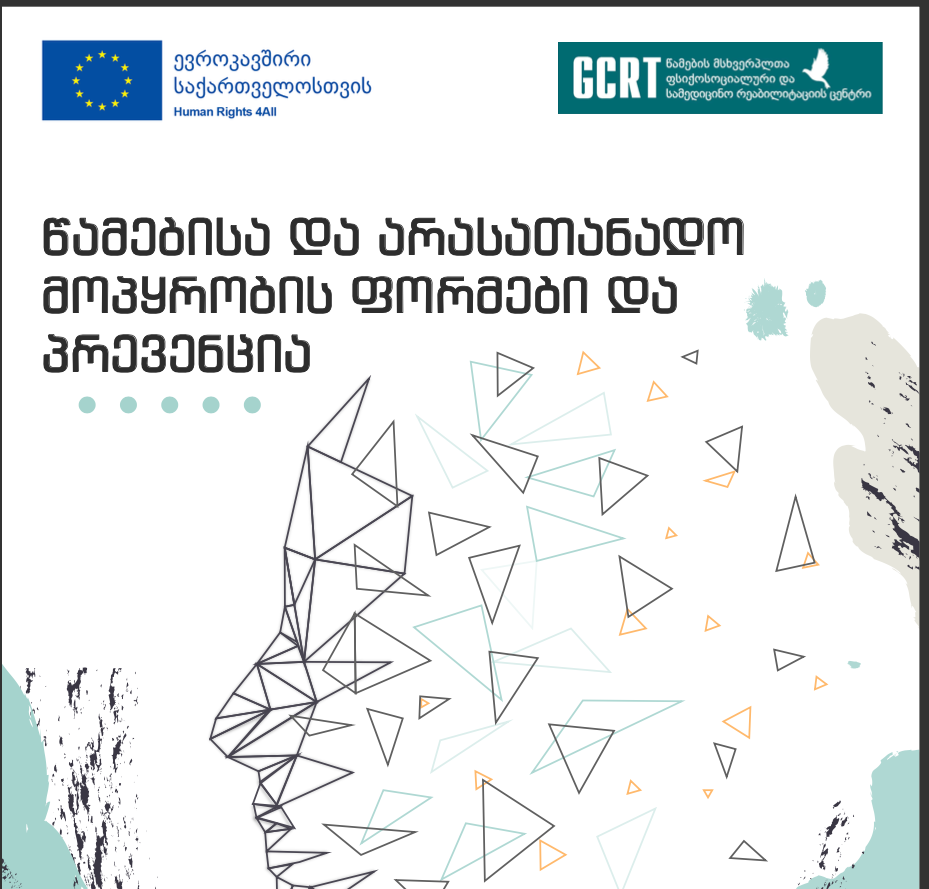


On April 29, 2020, Georgian Young Lawyers’ Association held an online presentation of the report - “Prevention and Forms of Torture and Ill-Treatment”.
For the purposes of the report, ten criminal cases litigated by GYLA in 2019 were analyzed. 10 cases were looked at from the perspective of specific forms of ill-treatment, person/persons conducting ill-treatment, the problem of granting a person the victim status, and the issues related to rendering final decisions into inhuman treatment cases. The report includes analyzes of the Georgian legislation, ECHR’s decisions, public information requested from various state agencies, interviews with victims into the cases handled by GYLA, a victim's legal successor in one case (the victim died), two inmates of a penitentiary facility seeking GYLA's assistance and four lawyers dealing with ill-treatment cases.
There have been no systematic cases of torture and ill-treatment in recent years, yet committing this type of crime by law enforcement officers still remains a problem. As in previous years, it is still problematic for law enforcement agencies to properly classify incidents, conduct investigations within reasonable timeframes, and recognize survivors of ill-treatment as victims. The creation and enactment of the State Inspector Service have been positively assessed, yet the adoption of the current edition of the Law “On State Inspector Service” limiting the Inspector’s mandate cannot earn a positive evaluation.
As a result of the report, the following key findings have been identified:
- The analysis of the cases litigated by GYLA showed that in 2019 law enforcement officers generally resorted to beating as a form of torture/ill-treatment, and psychological violence, forced abortion, and rape were reported as well in single cases, respectively.
- A victim into one of the cases handled by GYLA and an inmate in a penitentiary facility noted in an interview that they attempted suicide after being pressurized. This indicates the severity of the psychological consequences of torture/ill-treatment.
- In the cases litigated by GYLA, the investigations into torture/ill-treatment cases, regardless of their severity, most often are initiated under Article 333 of the Criminal Code (60%).
- The investigation into a majority of the cases of alleged ill-treatment was launched by the Office of the Prosecutor under Article 333 (91%) of the Criminal Code, which envisages exceeding official powers.
- In the cases of inhuman treatment, the rate of granting the victim status is still very low, in particular, only in two out of ten cases handled by GYLA the persons were known as victims.
- No one has been charged into the GYLA-litigated cases investigated under Article 333 of the Criminal Code of Georgia.
- The nine-month period statistics 2019, in particular, in terms of the investigations initiated under Article 333, paragraph 3 of the Criminal Code show that the overall rate of launching the prosecution is very low. In the investigations initiated by the Prosecutor's Office under Article 333, paragraph 3 (b), only three persons were prosecuted, which accounts for merely 1.6% of the cases.
- The decisions of prosecutors refusing the victim status were appealed in a court in seven cases. Of the decisions appealed, only one was upheld by the court.
We obtained significant information about the given issue with the help of the report methodology and developed recommendations based on the findings. GYLA hopes that the recommendations will help to prevent the facts of ill-treatment.
The report was prepared within the project supported by European Union -“Combating Torture and Ill-Treatment in Georgia, Armenia and Ukraine”, which is implemented by GYLA together with Psychosocial and Medical Rehabilitation Center of Torture Victims (GCRT) since February 2018.
ჯ. კახიძის #15, თბილისი, საქართველო, 0102 ; ტელ: (995 32) 95 23 53; ფაქსი: (995 32) 92 32 11; ელ-ფოსტა: gyla@gyla.ge; www.gyla.ge
15, J. Kakhidze str. 0102, Tbilisi, Georgia. Tel: (995 32) 95 23 53; Fax: (995 32) 92 32 11; E-mail: gyla@gyla.ge; www.gyla.ge